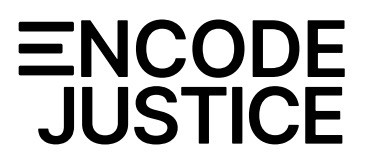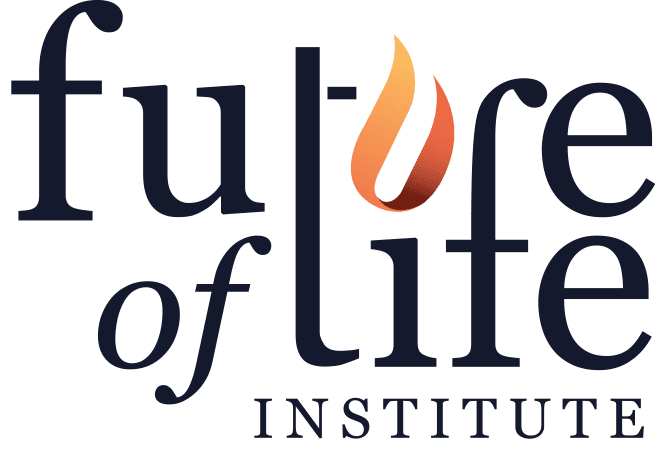AI Licensing for a Better Future: On Addressing Both Present Harms and Emerging Threats
This open letter is also available as a PDF.
Dear Senate Majority Leader Schumer, Senator Mike Rounds, Senator Martin Heinrich, Senator Todd Young, Representative Anna Eshoo, Representative Michael McCaul, Representative Don Beyer, and Representative Jay Obernolte,
As two leading organizations dedicated to building an AI future that supports human flourishing, Encode Justice and the Future of Life Institute represent an intergenerational coalition of advocates, researchers, and technologists. We acknowledge that without decisive action, AI may continue to pose civilization-changing threats to our society, economy, and democracy.
At present, we find ourselves face-to-face with tangible, wide-reaching challenges from AI like algorithmic bias, disinformation, democratic erosion, and labor displacement. We simultaneously stand on the brink of even larger-scale risks from increasingly powerful systems: early reports indicate that GPT-4 can be jailbroken to generate bomb-making instructions, and that AI intended for drug discovery can be repurposed to design tens of thousands of lethal chemical weapons in just hours. If AI surpasses human capabilities at most tasks, we may struggle to control it altogether, with potentially existential consequences. We must act fast.
With Congress slated to consider sweeping AI legislation, lawmakers are increasingly looking to experts to advise on the most pressing concerns raised by AI and the proper policies to address them. Fortunately, AI governance is not zero-sum – effectively regulating AI now can meaningfully limit present harms and ethical concerns, while mitigating the most significant safety risks that the future may hold. We must reject the false choice between addressing the documented harms of today and the potentially catastrophic threats of tomorrow.
Encode Justice and the Future of Life Institute stand in firm support of a tiered federal licensing regime, similar to that proposed jointly by Sen. Blumenthal (D-CT) and Sen. Hawley (R-MO), to measure and minimize the full spectrum of risks AI poses to individuals, communities, society, and humanity. Such a regime must be precisely scoped, encompassing general-purpose AI and high-risk use cases of narrow AI, and should apply the strictest scrutiny to the most capable models that pose the greatest risk. It should include independent evaluation of potential societal harms like bias, discrimination, and behavioral manipulation, as well as catastrophic risks such as loss of control and facilitated manufacture of WMDs. Critically, it should not authorize the deployment of an advanced AI system unless the developer can demonstrate it is ethical, fair, safe, and reliable, and that its potential benefits outweigh its risks.
We offer the following additional recommendations:
- A federal oversight body, similar to the National Highway Traffic Safety Administration, should be created to administer this AI licensing regime. Since AI is a moving target, pre- and post-deployment regulations should be designed with agility in mind.
- Given that AI harms are borderless, we need rules of the road with global buy-in. The U.S. should lead in intergovernmental standard-setting discussions. Events aimed at regulatory consensus-building, like the upcoming U.K. AI Safety Summit, must continue to bring both allies and adversaries to the negotiating table, with an eye toward binding international agreements. International efforts to manage AI risks must include the voices of all major AI players, including the U.S., U.K., E.U., and China, as well as countries that are not developing advanced AI but are nonetheless subject to its risks, including much of the Global South.
- Lawmakers must move towards a more participatory approach to AI policymaking that centers the voices of civil society, academia, and the public. Industry voices should not dominate the conversation, and a concerted effort should be made to platform a diverse range of voices so that the policies we craft today can serve everyone, not just the wealthiest few.
Encode Justice, a movement of nearly 900 young people worldwide, represents a generation that will inherit the AI reality we are currently building. In the face of one of the most significant threats to our generation’s shared future—the specter of catastrophic AI—we refuse to bury our heads in the sand. At the same time, we refuse to abandon our unfinished efforts to mitigate existing harms and create a more equal and just America. The Future of Life Institute remains committed to steering this transformative technology for the good of humanity, and the ongoing, out-of-control AI arms race risks our lives, our civil liberties, and our wellbeing. Together, we see an urgent moral imperative to confront present-day risks and future-proof for oncoming ones. AI licensing presents an opportunity to do both.
Sincerely,


How does verification work?
• Declaration URL - This person has made a public declaration of signing the open letter which can be viewed online.
